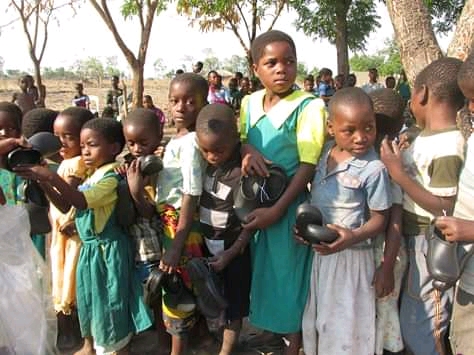The United Nations Children’s Fund( UNICEF) says it is committed to support the Ministry of Education, Science and Technology to monitor the coverage and quality of the distance learning programme, looking forward to children safely returning to school as soon as possible.
UNICEF says the re-opening of schools also presents an opportunity to ” build back better”- by investing in equitable, quality education and skills development to ensure a whole generation of children and young people are not left behind.
The organization says the COVID-19 pandemic has affected the lives of millions around the world saying an entire generation of children globally has seen their education interrupted in the past few months, school closures have disrupted the education of more than 1 billion students- 91% world wide.
This is contained in a speech by UNICEF Resident representative, Malawi, Rudolf Schwenk on ( vitual participatory) launch of Emergency Radio Education Programme.
UNICEF says in Malawi, almost 8 million school- age children attending pre- primary, primary and secondary education are at home since 23rd March.
The organization says it is aware that school children, especially girls, who are out of school for extended periods of time are much less likely to return when classrooms re open.
It says the closure of schools also eliminates access to school- based nutrition programmes , during malnutrition rates upwards saying an entire generation of students could suffer damage to their learning and potential.
“I encourage all parents and the community at large to support their children and help them participate in these lessons and make full utilization of this opportunity,”reads the speech in part by Mr. Schwenk.
UNICEF says radio is by far the most likely used medium and a crucial information source of people, especially in rural areas in Malawi, since many children in Malawi have now reading proficiency, the use of radios is very suitable solution for distance learning.
The organization says it will continue to collaborate with the government and other partners to reduce learning disparities, while increasing access to quality education programmes to be successfully incorporated into both formal and non- formal education settings, provide children in urban and in rural areas, including even those in isolated areas, access to learning.
It says the programme offers an alternative platform for the millions of children currently staying at home in Malawi saying it has the potential to serve almost 6 million children enrolled in primary sector across the country with focused lessons in literacy, numeracy and science through MBC Radio 1 and 2.




















